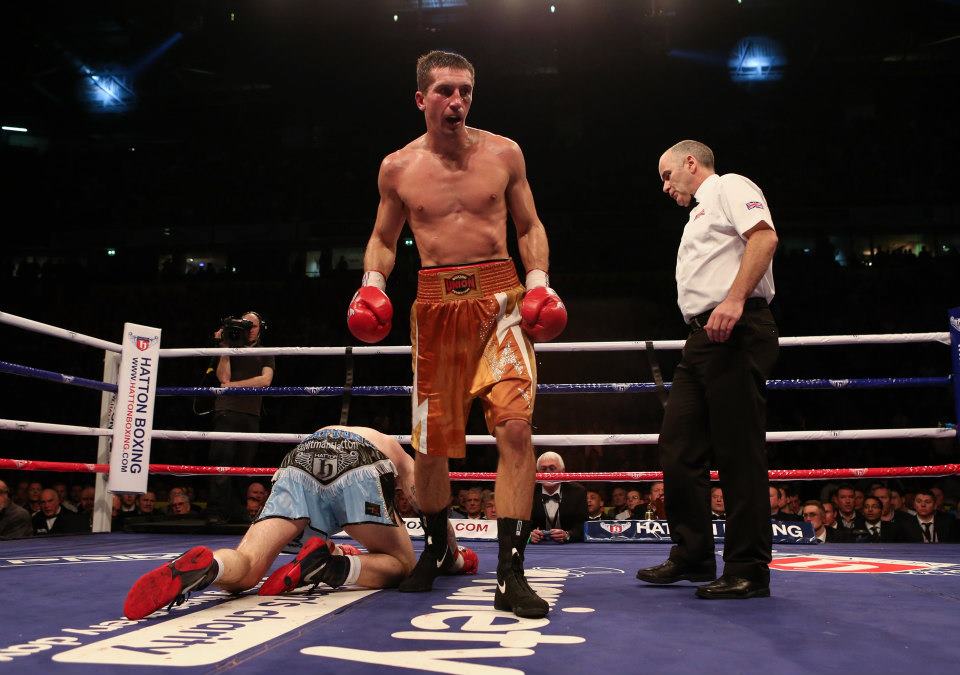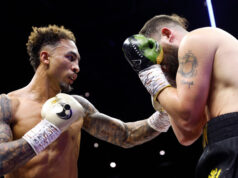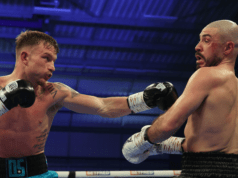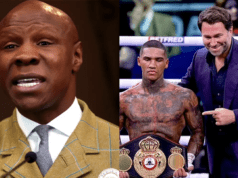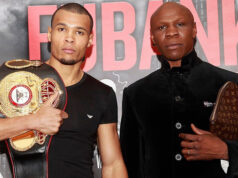More than a few boxing pundits were eating crow this weekend, having predicted that Ricky Hatton would whip Vyacheslav Senchenko, winning either by a lopsided points decision or late round stoppage. Although I was among those predicting a Hatton win, I don’t feel I’m among the sports writers who dined on exotic fowl, since I came very close to pegging what actually happened in that Manchester ring. The reasons why I almost got it right and so many others got it completely wrong point directly to the enormous mistakes Ricky Hatton made in launching his comeback.
Hatton Got the Benefit of the Doubt
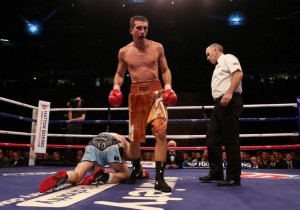
In my preview for Hatton’s comeback fight, I actually hit on all the reasons he lost. I pointed out that The Hitman was coming out of a lengthy retirement riddled with substance abuse, that he is too small to fight as a swarmer at 147 lbs, and that his boxing style is not forgiving of either old or out of condition fighters.
I even predicted the course of the action with a reasonable degree of accuracy, in all respects but one: I didn’t count on Hatton running out of gas before even the mid-point of the fight. Lacking any solid information about Hatton’s training, I gave him the benefit of the doubt and assumed he did it properly. He didn’t, and that’s why he lost.
Ricky Hatton had to lose a reported 70 lbs to make weight for a welterweight bout, a division well-established as being too big for the man. In retrospect, that was the biggest hint that Hatton was not really prepared for a return to the ring, because a properly rebuilt Hatton (or at least as reconditioned as he could be at this point) would have shot for a return to 140 lbs.
My guess is that his training camp was focused on reaching a number on the scale, and not on rebuilding his lost conditioning, and that is always a bad thing. Between the weight loss-oriented training, age, rust and substance abuse, is it any wonder Ricky Hatton wound up shooting his entire wad after just a handful of rounds?
He Could Have Done It
The thing one needs to realize about Hatton’s comeback is that it need not have ended in a humiliating defeat and a return to retirement. As many have pointed out, Hatton’s first retirement was probably premature. The guy had been knocked out by Floyd Mayweather and Manny Pacquiao respectively, but those two were (and are) the dominant welterweights in the world, and were in a whole other class from The Hitman. Against contenders in the 140-pound division and more typical of what is meant by “world class fighter,” Hatton was still winning at the time. I speculate that Hatton’s departure had more to do with his personal demons than anything happening in the ring at the time.
Against Senchenko, Hatton showed plenty of his old stuff early in the fight, a clear indicator that he still had some stuff to build on. If Erik Morales could have come back from a few years off and made a reasonable run at a higher weight class, there is no reason to suppose it was impossible for Hatton could get into good condition, come back and make a reasonable run in his bailiwick of 140 lbs. Like Morales, a reasonable run would have meant tuning up with journeymen before tangling with a fighter of mettle. He did none of those things, and the result was a rout.
If fighting at 147 lbs wasn’t a big enough clue, getting into the ring with Vycheslav Senchenko should have been another. Hatton’s boosters drummed on the fact that Senchenko was a guy who got stopped on cuts by feather-fisted Paulie Malignaggi, implying that such a man could never stand the hellfire of The Hitman. The suggestion is ridiculous, because whatever else Senchenko might be, he is at least a solid fringe contender and a legitimate welterweight.
I even hinted that if Hatton were to win on a decision, that decision would be a gift (I have a hard time seeing Ricky Hatton lose in Manchester if he is still standing for the final bell). Senchenko was entirely the wrong type of guy to throw Hatton in with for a comeback fight, so much so that one has to wonder in hindsight if Hatton’s people weren’t sending him to the glue factory for one final cash-in.
Hatton promptly returned to retirement after his defeat, which makes the entire sad farce even more tragic. I am sincere in my belief that if Hatton and his people had invested in the time it would have taken to slowly recondition him, Hatton could have enjoyed a nice mid-30s run at 140 lbs. A lot of guys in the junior welterweight Top 10 would have made mincemeat of him, of course, but there were fights out there that would have been lucrative, entertaining, and competitive for him. Ricky Hatton vs. Erik Morales comes to mind. Even a safe build-up to Khan vs. Hatton, and the inevitable rout entailed there, would have at least been better for Hatton’s bank account, reputation and peace of mind than Senchenko TKO9 Hatton.


